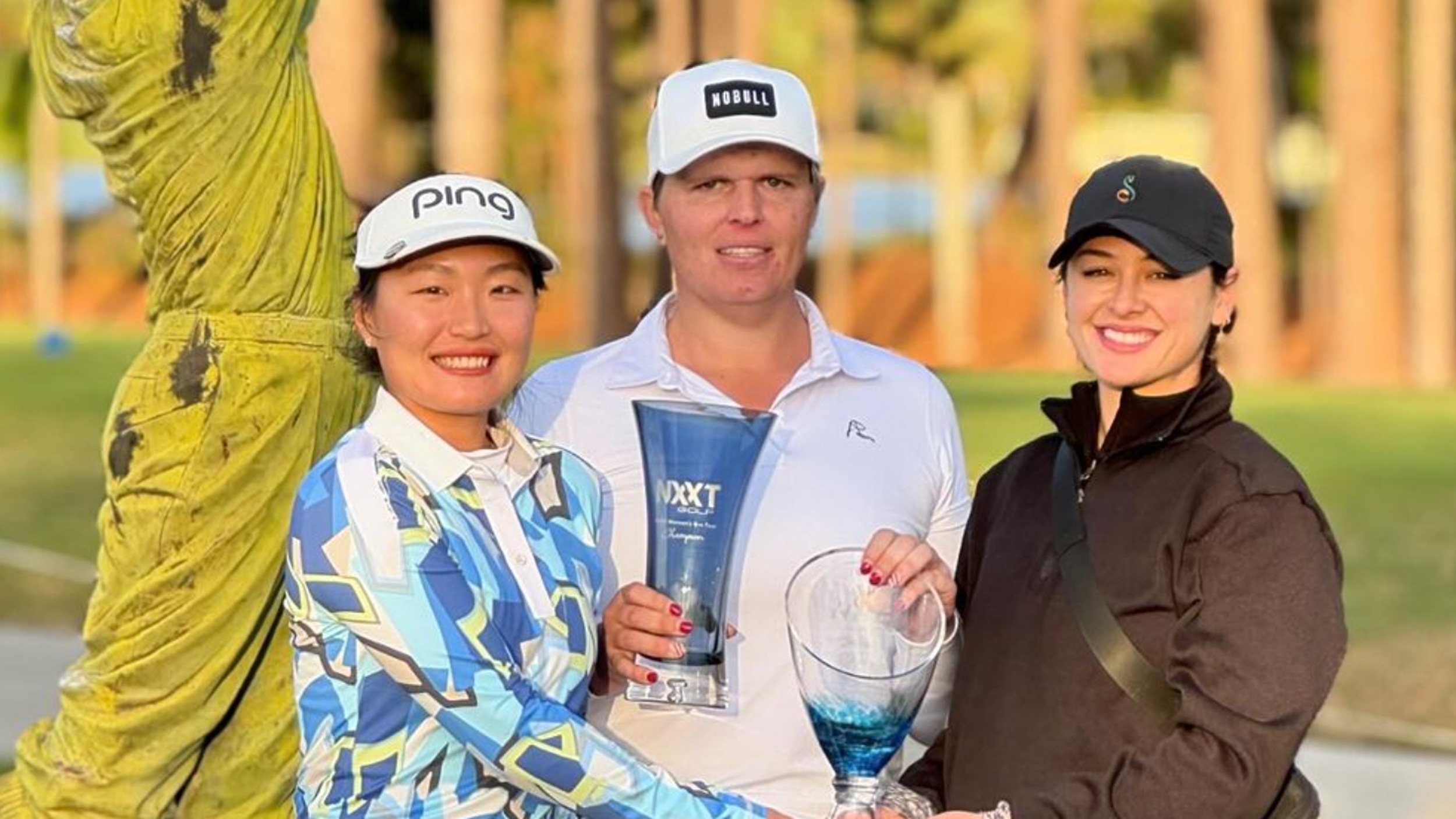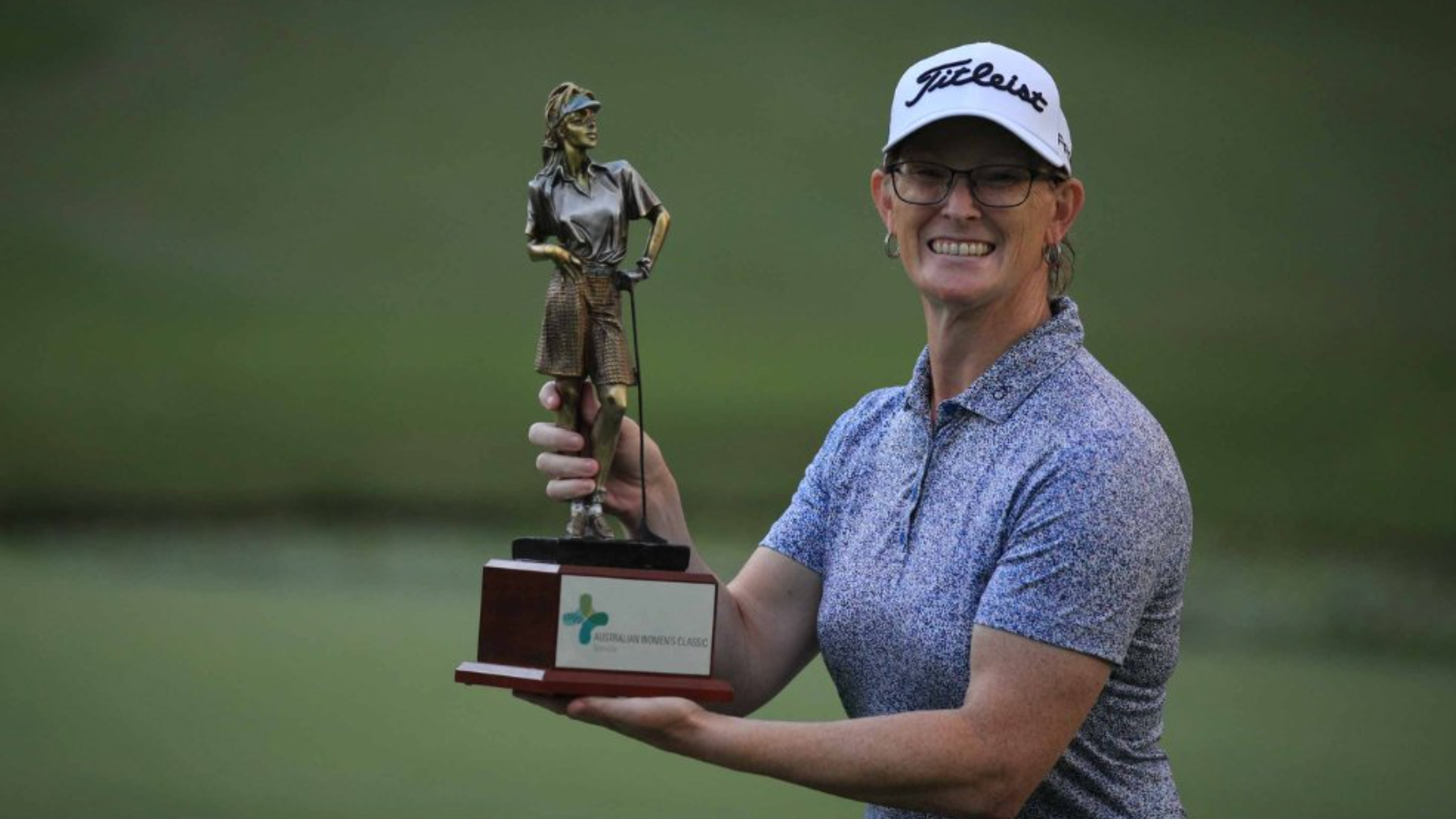Golf's Transgender Debate: 'We Have To Safeguard The Growing Status Of The Women's Game'
Alison Root considers the impact of allowing transgender golfers to compete on the women's tours


Subscribe to the Golf Monthly newsletter to stay up to date with all the latest tour news, equipment news, reviews, head-to-heads and buyer’s guides from our team of experienced experts.
You are now subscribed
Your newsletter sign-up was successful
Want to add more newsletters?

Delivered daily
Daily Newsletter
Sign up for all the latest tour news, gear reviews, head-to-heads and buyer’s guides plus features, tips from our top 50 coaches and rules advice from our expert team.

Once a week
Kick Point
Sign up to our free Kick Point newsletter, filled with the latest gear reviews and expert advice as well as the best deals we spot each week.

Once a week
Women's Golf Edit
Sign up to our free newsletter, filled with news, features, tips and best buys surrounding the world of women’s golf. If you’re a female golfer, you won’t want to miss out!
As golfers, we bear the responsibility of upholding elevated standards of honesty, sportsmanship, and fair play in a game that places a significant emphasis on integrity. Consequently, when news surfaced of transgender golfer Hailey Davidson clinching victory in the NXXT Women’s Classic, it immediately raised the question in my mind and others: is this fair?
Unless directly engaged in the subject of transgender athletes, it's understandable why there might be a lack of awareness, especially considering that the scientific understanding of transgender issues, including the impacts of hormone replacement therapy, is an ever-evolving field.
In Davidson's situation, she has undergone the transitioning process over the last nine years. The former male golfer acknowledges that initially she had an unfair advantage, but believes this is no longer the case. Following surgery in 2021, she has shed just over 100 pounds and experienced a decrease in swing speed by 50 miles per hour, leading to a loss of 30 yards off the tee.
This may be true, but I still struggle to accept that she no longer possesses advantages over her female counterparts. Although 30-year-old Davidson has taken medications to lower testosterone levels, the fact that she experienced male puberty implies that she may still retain higher bone density and muscle mass, resulting in greater physical strength.
When Davidson hit the headlines on this complex and sensitive issue, a surge of emotional responses with divided opinion led the NXXT Women’s Pro Tour to swiftly release a statement announcing that it is to survey all members on its gender policy following “recent public concern.” Davidson has also taken an additional testosterone test to ensure compliance with the appropriate guidelines within the frameworks set by the LPGA and USGA.

Breanna Gill opened opened the transgender debate after winning the 2023 Australian Women’s Classic
In various sports, global policies regarding the inclusion of transgender athletes differ significantly, creating inconsistency and some grey areas. For example, in the UK, football players may apply to compete in a league of their “affirmed gender,” and similarly, the USTA allows transgender players to compete in women’s tennis if they have a verifiable history of hormone treatments.
Last year, World Athletics made the decision to prohibit transgender women from competing in elite competitions and implemented more stringent testosterone restrictions for other athletes. At that time, President Sebastian Coe said that the decision was based "on the overarching need to protect the female category".
Subscribe to the Golf Monthly newsletter to stay up to date with all the latest tour news, equipment news, reviews, head-to-heads and buyer’s guides from our team of experienced experts.
The International Olympic Committee places an important emphasis on gender equality, inclusion, and diversity as integral components of its vision to promote a better world through sport. Consequently, the decision to introduce a new requirement for the upcoming Games in Paris, specifying that athletes must have completed their transition before the age of 12 to be eligible for competition, reflects a thoughtful and considered approach.
With well-intentioned motives, the LPGA modified its guidelines in 2010, allowing transgender golfers who had undergone sexual reassignment surgery to compete. But this raises concerns about the adequacy of regulations, particularly regarding hormone replacement therapy. The additional testing for Davidson prompts the question of whether such evaluations should have been mandatory before she teed up in the first place.
The lack of strict and standardised regulations appears to create an unregulated environment as sports people go through different stages of the transition process. While these challenges persist in professional golf and are unlikely to diminish any time soon, their impact also reaches the amateur level. Notably, experiences shared by Golf Monthly colleague, 2 handicapper Carly Frost. She has competed in scratch matches against transgender women and on both occasions was outdriven by at least 100 yards.
I'm not anti-transgender; people should express their gender identity comfortably, but not in competitive female sporting environments. In recent years, there has been significant effort to elevate women's sports, particularly in golf, allowing women to truly own the game.
My sentiment is to safeguard the hard work that has contributed to the current status of women’s golf and the greater opportunities that have been created for female professional players. The number one priority is to retain the accomplishments we have achieved without them being tarnished and continue to develop the women’s game in a fair environment.
Alison Root has over 25 years experience working in media and events, predominantly dedicated to golf, in particular the women’s game. Until 2020, for over a decade Alison edited Women & Golf magazine and website, and is now the full-time Women's Editor for Golf Monthly. Alison is a respected and leading voice in the women's game, overseeing content that communicates to active golfers from grassroots through to the professional scene, and developing collaborative relationships to widen Golf Monthly's female audience across all platforms to elevate women's golf to a new level. She is a 16-handicap golfer (should be better) and despite having had the fantastic opportunity to play some of the best golf courses around the world, Kingsbarns in Scotland is her favourite.
